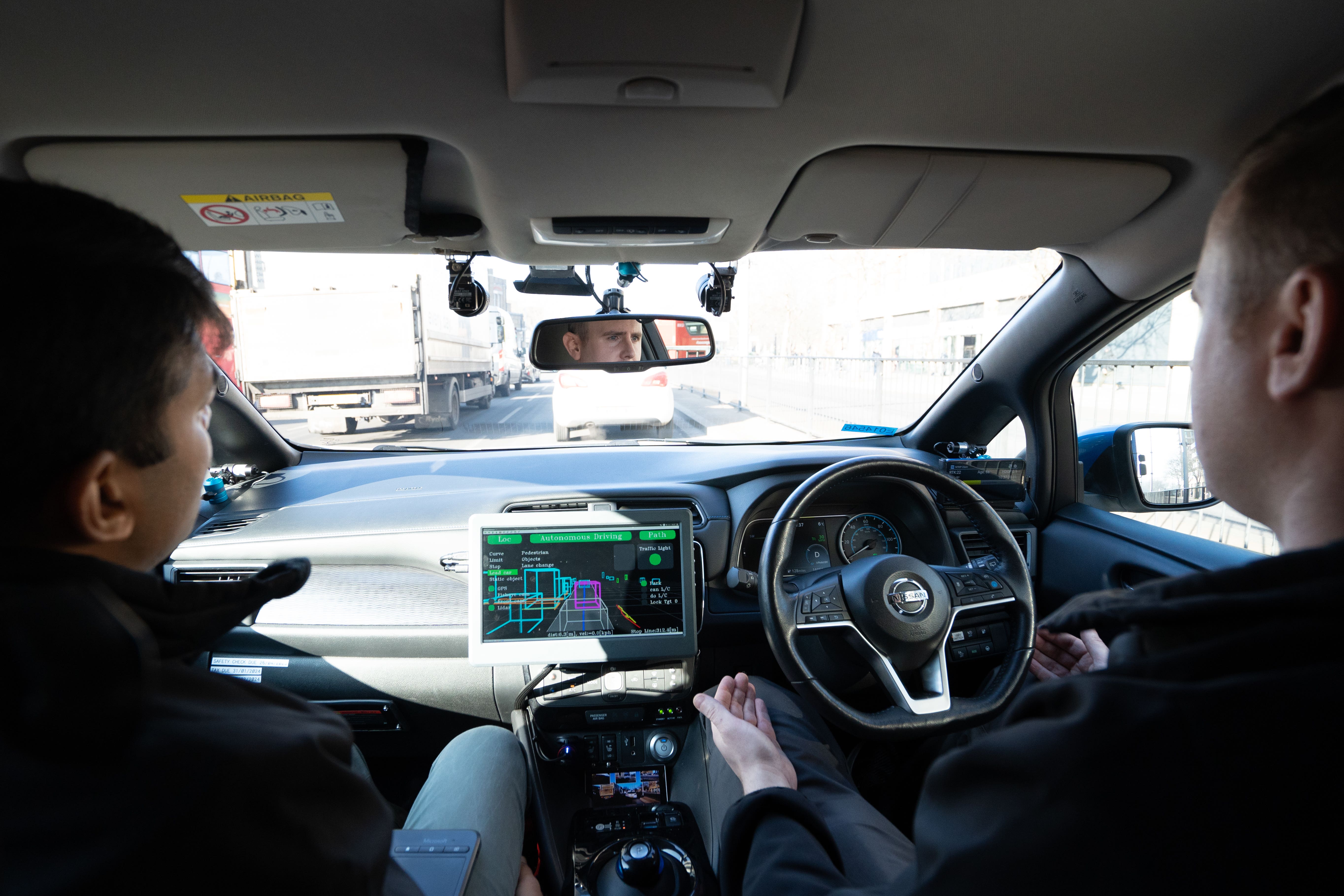Government urged to include self-driving vehicle legislation in King’s Speech
MPs said the UK should seek to ‘maintain’ its ‘competitive advantage’ over other countries in relation to the technology.

Your support helps us to tell the story
From reproductive rights to climate change to Big Tech, The Independent is on the ground when the story is developing. Whether it's investigating the financials of Elon Musk's pro-Trump PAC or producing our latest documentary, 'The A Word', which shines a light on the American women fighting for reproductive rights, we know how important it is to parse out the facts from the messaging.
At such a critical moment in US history, we need reporters on the ground. Your donation allows us to keep sending journalists to speak to both sides of the story.
The Independent is trusted by Americans across the entire political spectrum. And unlike many other quality news outlets, we choose not to lock Americans out of our reporting and analysis with paywalls. We believe quality journalism should be available to everyone, paid for by those who can afford it.
Your support makes all the difference.Progress in developing self-driving vehicles risks stalling if the Government fails to include relevant legislation in the King’s Speech, MPs have warned.
A report by the Commons’ Transport Committee stated the UK had a “competitive advantage” over other countries in relation to the technology, but warned “we must maintain it”.
The select committee urged the Government to introduce new laws putting into place a robust regulatory framework for self-driving vehicles.
Self-driving vehicles are a great British success story in the making and we have a competitive advantage over many other countries
This should cover vehicle approval, liability for accidents, cybersecurity and the use of personal data, according to the report.
The MPs warned: “Failing to do so will do significant and lasting damage both to the UK’s self-driving vehicle industry and to this country’s reputation as a trailblazer.”
The Government will set out proposed legislation for the next parliamentary session in the King’s Speech on November 7.
In April, the UK became the first European country to allow drivers to take their hands off car steering wheels on public roads, after the Department for Transport gave manufacturer Ford permission to activate its BlueCruise system on motorways.
All that hard work could be at risk if the Government doesn’t follow through and bring forward a transport Bill in the next parliamentary session, before the next general election
This controls functions such as steering, acceleration, braking and lane positioning.
Fully self-driving cars remain banned on public roads in the UK apart from during Government-approved trials.
Iain Stewart, who chairs the Transport Committee, said: “Thanks to the energy and creativity of the self-driving vehicles sector, the UK has a head start in developing a vision for how SDVs (self-driving vehicles) could be introduced. The Government’s strategy is one this committee broadly welcomes.
“Self-driving vehicles are a great British success story in the making and we have a competitive advantage over many other countries.
“But all that hard work could be at risk if the Government doesn’t follow through and bring forward a transport Bill in the next parliamentary session, before the next general election.
We believe the Government should take a cautious, gradual approach, with SDV technologies only initially introduced in well-defined contexts, or else we risk unintended consequences
“Widespread take-up of SDVs faces various hurdles, including public confidence in their safety, security and their potential to have knock-on impacts on other road users.
“If the Government is going to meet its ambitions for self-driving vehicle deployment, these knotty issues need to be addressed.
“We believe the Government should take a cautious, gradual approach, with SDV technologies only initially introduced in well-defined contexts, or else we risk unintended consequences.”
A Department for Transport spokesman said: “Self-driving vehicles have the potential to reduce road accidents and the Government is putting safety at the heart of their development – ensuring they are resilient and regulated.
“That’s why Government and industry have jointly invested £600 million since 2015.
“This includes £34 million of recent Department of Transport funding to help develop self-driving vehicles that are secure, reliable and cyber-resilient.”